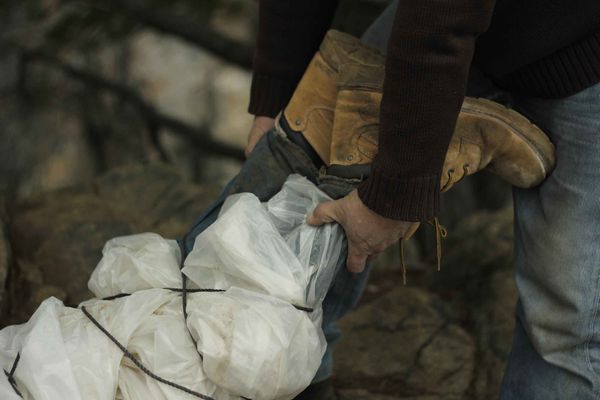Eye For Film >> Movies >> To Kill A Man (2014) Film Review
To Kill A Man
Reviewed by: Amber Wilkinson

Revenge movies aren't what they used to be, at least as far as this year's Sundance output was concerned. One of the stand-out films of the festival was the sweaty, twitchy Blue Ruin and this moody, slow sweep of a film from Chile - which won the World Cinema Dramatic Grand Jury Prize - also offers an unusual take on the idea of comeuppance. Here it is as much the ricochet of tragedy that echoes through a family which comes to the fore as much as the act of vengeance itself.
Evocatively shot by Inti Biones and broodingly scored by Pablo Vergara - whose swelling, discordant bassoons offer a mournful and unsettling lament - Alejandro Fernández Almendras handles the tension well even if his early, langorous pacing means things take a while to get going in the narrative department.

The story, like Blue Ruin, concerns an unlikely avenger, the reserved and nervous Jorge (Daniel Candia), a forest worker who lives with his family and largely keeps himself to himself. His timidity gives him the attitude of a victim, sensed by the local gang of thugs, who set upon him in the street and steal his vital diabetic medication. In the first act of attempted retribution - and one which will begin a spiral that is unlikely to have a happy ending - his son Jorgito (Ariel Mateluna) heads out to confront gang head Kalule (Daniel Antivilo) and ends up on the wrong end of a gun.
Realising he has badly injured Jorgito, Kalule quickly turns the gun on himself in order to claim self-defence at trial. A smart ruse that ends in a sentence of less than two years. If Jorge is a natural victim - even within his own home he is continually harangued by his wife (Alexandra Yanez) - then Kalule is a born bully, whose first reaction on being released is to try to wreak vengeance on the family who sent him down. Almendras skips from the trial to the release, by which time Jorge has become even more downtrodden, now divorced and living alone. When the authorities refuse to step in to halt Kalule's menacing, the question becomes not whether the worm will turn but how.
The act of revenge here is presented not as an outlet for anger but as one of desperation, an emotion that runs through the film. Jorge is desperate to be left alone, to be respected in his family, to just get on with life, while Jorgito's problems stem from being desperate to be something his father is not. Kalule, too, will come to display his own version of Gollum-like desperation in scenes of pitiful bargaining.
The title, to an extent, becomes ambiguous. Who is the man being killed and by what? More importantly, there are questions about manhood and expectation in modern Chile, although Almendras' decision to make Jorge something of a blank slate in terms of emotion means he leaves the audience to do a lot of the work. Utimately, it seems Jorge is just a pawn in a game where victory is always hollow.
Reviewed on: 13 Jun 2014














